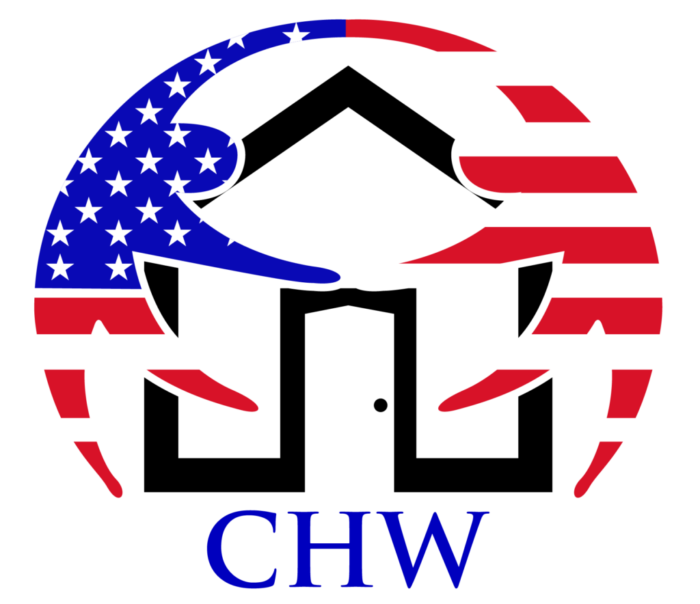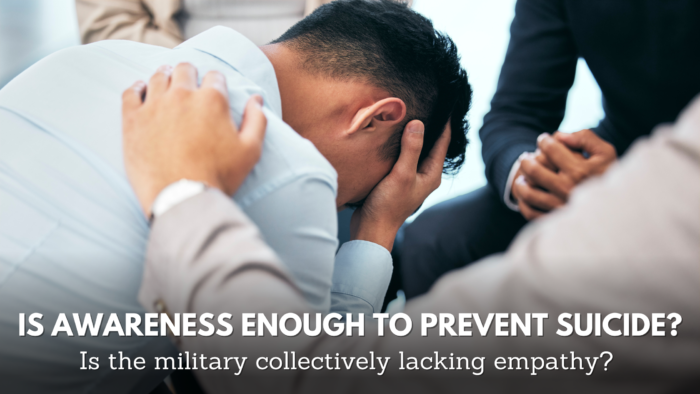By Donna Hoffmeyer
(original post on Medium)
How time flies! I wrote this article in 2021 and there was a little hope the suicide rate among Veterans was dropping. However, it was just a transient glimmer. Here we are in 2023 and I receive a text today from a friend and colleague telling me he is at a Suicide Prevention Symposium and they were just told the Veteran suicide rate is currently at 31 per every 100,000.
My heart sank.
I went back to this blog article and the words written then, still hold true today. I thought it wouldn’t hurt to reshare the information.
***********************************************************************************************************
I was chatting with a long-time military friend the other day, as I started to write this article. “How many people do you know that took their life?” I asked.
“I know two. You?” he replied.
“I know four.”
Suicide in the military is more prevalent than any of us would care to believe. I can ask any of my military friends and almost guarantee they know someone who took their life.
The headlines are even more validating. They seem to be on repeat…suicide rate is at an all-time record high. And folks, here’s another headline…2020 ended no differently.
A few numbers:
Total estimated number of suicides by active duty and veterans of post 9/11 wars
Number of service members killed in post-9/11 war operations
385 (+35 from 2019)
Number of Active Duty suicides in 2020
197 (+44 from 2019)
Number of Reserve suicides in 2020
120 (+32 from 2019)
Number of Guard suicides in 2020
76 (-14 from 2020)
Number of Active Duty suicides in Q1 2021
39 (-7 from 2020)
Number of Reserve suicides in Q1 2021
26 (No change from 2020)
Number of Guard suicides in Q1 2021
On a good note, the first quarter of 2021 started better than the first quarter of the previous 3 years. Whether up or down, the question we do not have and have not been able to answer is “why”. Why is the rate dropping now? Is it a fluke? Is it because the world has opened up a little and we are starting to reconnect with each other? Will it get worse with the abrupt pullout in Afghanistan?
The root cause of these attempts and successes is too difficult to tease out. It is multifactorial. There is no one reason and there is no one solution. Rather, it is a cumulative effect of minor and major insults leading to the misperception the world is better off without them.
What I perceive we are lacking collectively in the military, is a lack of empathy. After the last 20 years, I’m pretty sure the majority of us, to some level, can understand the struggle of our brothers and sisters in arms. Hell, many of us may even be sympathetic, as we deal with our demons. However, here’s where I feel we fall short. (Again, collectively.)
We don’t meet people where they are at.
When we see someone is struggling, we try to quickly acknowledge and move them along with the intention (or hope) of “fixing” them in a certain amount of time; often to get them back to “themselves”, and getting them back to the mission (whether that be life or work). Noble goals…but often unrealistic…and more for our ease of mind than theirs. When they don’t meet our mental timeline (which is often much shorter than what is truly needed), we become uncomfortable. It’s been 6wks/6mo/6yrs…why are they not back to themselves; back to how we knew them?
They are now almost seen as a liability, unsalvageable, and whether intentional or not, inadvertently treated as such. This just amplifies the devalued feeling they already have and increases the speed of the spiral…desire for isolation, more negative thoughts, more isolation, no outside validation, thoughts no one cares, more isolation, thoughts are now reality…no value…no life.
I had a mental health professional say to me that the person I was requesting care for must be pretty special to have received all the mental health care he had received to date. My response? “Yes, he’s a human being.” Seriously…
On a micro level, I have run into the occasional commander that has accepted the service member’s status and responded accordingly. That little act of true acceptance was enough to keep the service member in the fight.
Empathy by definition, is understanding and having awareness of the other person’s position. I say it is not enough. We have to truly accept what they are feeling is real. It does not matter if we perceive it as real or not. It matters that we accept what they perceive as real and support them through their journey.
Their journey. Not ours, not what we think it should be, not our friend’s journey, and not how we envision their journey for them. Their journey.
Yes, I know, we all want to believe we are empathetic and meet people where they are at in their lives. Wake up call…collectively, we’re not.
We are a fast-paced society. Although COVID has involuntarily slowed life down significantly, it has also isolated us more than ever. How many of us, during lockdowns/quarantines, were calling or texting our friends and family and seeing how they were managing? How many of us thought of sending a snail mail card, e-card, or a funny gift…just because. How exactly could we expect our travailing service members and veterans to keep up their mental health on their own? Who is reaching out to them, reminding them they matter, and they belong amongst all of us?
Answer…it is US, it is ME, it is YOU.
It is the leader reaching out to the subordinate, asking how they are doing, and accepting the answer without judgment…good or bad. It is the airman, asking their unusually quiet peer out for lunch. It is the neighbor inviting the veteran, living alone, over for dinner and conversation. It is acknowledging a person’s pain and just sitting quietly with them, without expectations. It is the doctor/nurse/medic, taking the time to listen to understand. It is letting people hear they are valuable, even when they perceive they have nothing to offer.
We can get the smartest people in the world together to form working groups and tiger teams, analyze the data to death, develop policy, and implement amazing programs, and I do not think it would be as effective as individuals reaching out to other individuals. Do not get me wrong…policy opens the lanes to access care (okay, and sometimes ties them up…realist here); therapy of various modalities is critical for long-term success; and nonprofits reaching out are filling gaps when mental health resources are not available, or not cutting it. However, it is the most sincere, accepting, non-judgmental human connection that keeps us fighting to get better.
Emotional intelligence, folks. We need to stop and ask ourselves, How would I want someone to approach me in that situation? And when I say “ourselves”, I do not mean our ego-driven façade. I am talking about that soft underside few see. The inner person, maybe even the inner child.
Being aware is a good start, but by no means is it enough to prevent suicide. Be human…reach out.


